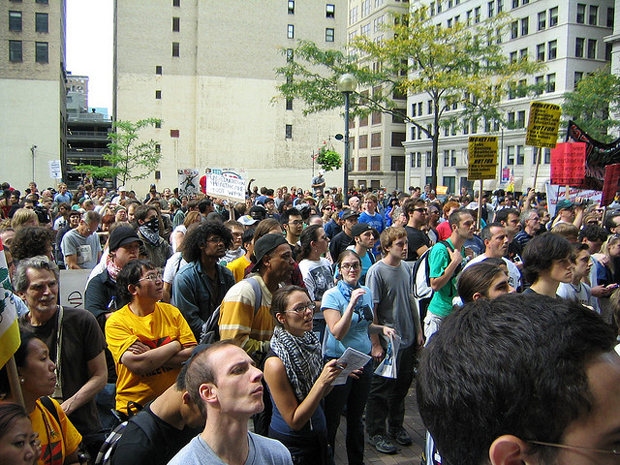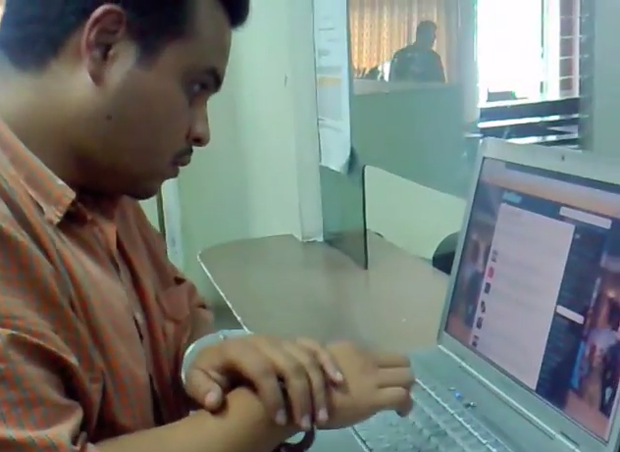28 Apr 2015 | Campaigns, Events, mobile
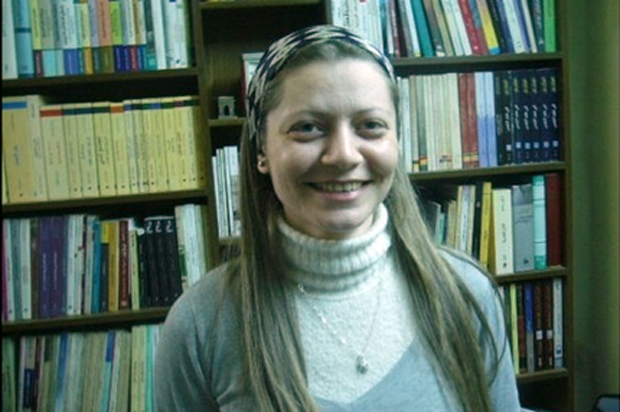
Razan Zaitouneh, above, Samira Khalil, Nazem Hamadi and Wa’el Hamada were abducted on 9 December 2013
To mark the 38th birthday (on April 29) of missing human rights defender and lawyer Razan Zaitouneh, head of the Violations Documentation Centre in Syria (VDC), winner of the 2011 Sakharov Prize for Freedom of Thought and the 2011 Anna Politkovskaya Award of RAW in WAR (Reach All Women In War), the undersigned human rights organizations today reiterate their call for her immediate release, as well as that of her missing colleagues Samira Khalil, Nazem Hamadi and Wa’el Hamada.
On December 9, 2013, the four human rights defenders, collectively known as the “Duma Four”, were abducted during a raid by a group of armed men on the offices of the VDC in Duma, near Damascus. There has been no news of their whereabouts or health since.
The VDC is active in monitoring and reporting on human rights violations in Syria and the undersigned organizations believe that the abduction of the four activists was a direct result of their peaceful human rights work. Their ongoing detention forms part of a wider pattern of threats and harassment by both government forces and non-state actors seeking to prevent human rights defenders exposing abuses.
In the months prior to her abduction Razan Zaitouneh wrote about threats she had been receiving and informed human rights activists outside Syria that they originated from local armed groups in Duma. The most powerful armed group operating in Duma at the time of the abductions is the Army of Islam headed by Zahran Alloush. In April 2014, Razan Zaitouneh’s family issued a statement saying they held Zahran Alloush responsible for her and her colleagues’ wellbeing given the large presence his group maintained in the area.
The undersigned organizations, as well as other activists, have been calling for the release of the “Duma Four” since their abductions. Today they again urge the Army of Islam and other armed groups operating in the area to take immediate steps to release the abducted VDC staff, or investigate their abduction and work for their release. They further urge governments that support these groups, as well as religious leaders and others who may have influence over them, to press for such action, in accordance with United Nations Security Council Resolution 2139, which “strongly condemns” the abduction of civilians and demands and immediate end to this practice.
Razan Zaitouneh has been one of the key lawyers defending political prisoners in Syria since 2001. She has played a key role in efforts to defend the universality of human rights and support independent groups and activists in Syria. Along with a number of other activists, she established the VDC and co-founded the Local Coordination Committees (LCCs), which co-ordinate the work of local committees in various cities and towns across Syria. She also established the Local Development and Small Projects Support Office, which assists non-governmental organizations in besieged Eastern Ghouta.
Samira Khalil has been a long-time political activist in Syria and had been detained on several occasions by the Syrian authorities as a result of her peaceful activism. Before her abduction, she was working to help women in Duma support themselves by initiating small income-generating projects. Wa’el Hamada, an active member of the VDC and co-founder of the LCC network had also been detained by the Syrian authorities. Before his abduction he was working, together with Nazim Hamadi, to provide humanitarian assistance to the residents of besieged Eastern Ghouta.
Signatories:
Alkarama Foundation
Amman Center for Human Rights Studies
Amnesty International
Arab Foundation for Development and Citizenship
Arab Network for Human Rights Information (ANHRI)
Arab Organization for Human Rights in Syria
Badael Foundation
Bahrain Centre for Human Right
Defending prisoners of conscience in Syria Organization
Cairo Center for Development (CCD)
Canadian Journalists for Free Expression (CJFE)
Centre for Democracy and Civil Rights in Syria
Committees for the Defending Democratic Freedoms and Human Rights in Syria
El-Nadeem Center for Rehabilitation of Victims of Violence
Enmaa Center for Democracy and Human Rights
Fraternity Center for Democracy and civil society
Front Line Defenders (FLDs)
Freedom House
Gulf Center for Human Rights
Human Rights Fist Society , Saudi Arabia
Human Rights Organization in Syria – MAF
Human Rights watch (HRW)
Humanist Institute for Co-operation with Developing Countries (HIVOS)
Hand in Hand Organization , Syria
Monitor for Human Rights in Saudi Arabia
Index on Censorship
International Media Support (IMS)
International Centre for Supporting Rights and Freedoms
International Civil Society Action Network (ICAN)
International Service For Human Rights (ISHR)
The Tunisian Initiative for Freedom of Expression
Institute for War and Peace Reporting (IWPR)
International Federation for Human Rights (FIDH) under the Observatory for the Protection of Human Rights Defenders
Iraqi Women Network
Iraqi Journalists Rights Defense Association(IJRDA)
Iraqi Network for social Media
Kurdish Committee for Human Rights in Syria (observer)
Kurdish Organization for Human Rights in Syria (DAD)
Kvinna till Kvinna Foundation
Lawyers for Lawyers
Lulua Center for Human Rights
Madad NGOs
Maharat Foundation
MENA Media Monitoring group
Metro Centre to Defend Journalists in Iraqi Kurdistan
National Organization for Human Rights in Syria
Nazra for Feminist Studies
No Peace Without Justice (NPWJ)
One World Foundation (OWF)
Omani Observatory for Human Rights
World Organization Against Torture (OMCT) under the Observatory for the Protection of Human Rights Defenders
Pax for Peace – Netherland
Pen International
Reach All Women in War (RAW)
Reporters Without Boarders (RSF)
Sentiel Human Rights Defenders
Syrian American Council (SAC)
Syrian Center for Media and Freedom of Expression (SCM)
Syrian Center for Legal Researches & Studies
Syrian Journalists Association
Syrian Network for Human Rights (SNHR)
Syrian League for Citizenship
Violations Documentation Center in Syria (VDC)
Yemeni organization for defending human rights and democratic freedom
13 Apr 2015 | Bahrain, Bahrain Statements, Campaigns, mobile, News, Statements

Bahraini human rights defender Nabeel Rajab (Photo: The Bahrain Institute for Rights and Democracy)
We in the Bahrain and international human rights NGO community condemn the arrest and detention of Nabeel Rajab, a prominent human rights defender in the Kingdom of Bahrain.
On 4 April, the Bahrain Public Prosecution Office renewed Mr. Rajab’s pretrial detention for a further 15 days. We call on the Bahraini authorities to immediately and unconditionally release Mr. Rajab and to drop all charges against him.
On 2 April 2015, security forces surrounded Mr. Rajab’s home and arrested him in relation to two new charges involving a series of recent tweets and an opinion piece published in the Huffington Post. The first charge is for “insulting a statutory body” in connection to his documentation of mistreatment and torture in Bahrain’s Jau Prison. The second charge of “spreading rumors during wartime” relates to his reporting on civilian deaths in Yemen, in contravention of a government prohibition of any public mention that is critical of the conflict. If he is convicted on all current charges, Mr. Rajab could face more than 10 years in prison.
At the request of the public prosecution, Bahraini authorities advanced Mr. Rajab’s scheduled appeal hearing from 15 April to 5 April, only to adjourn it to 5 May. This appeal concerns the six month sentence handed down to Nabeel Rajab on 20 January in relation to a tweet critical of the Bahraini Ministries of Interior and Defense.Mr. Rajab’s continued harassment and prosecution is a clear violation of his right to freedom of expression as guaranteed by the Universal Declaration of Human Rights (UDHR) and the International Covenant on Civil and Political Rights. Article 19 of the UDHR states that, “everyone has the right to freedom of opinion and expression…” while Article 19 of the ICCPR provides that, “Everyone shall have the right to freedom of expression; this right shall include freedom to seek, receive and impart information and ideas of all kinds, regardless of frontiers, either orally, in writing or in print, in the form of art, or through any other media of his choice.”
We therefore call on the government of Bahrain to immediately and unconditionally release Mr. Nabeel Rajab from custody and drop all charges against him. We further call on Bahrain to ensure free and peaceful expression, and to cease all harassment of and restrictions against civil society and human rights defenders in Bahrain.
Sincerely,
•Americans for Democracy & Human Rights in Bahrain (ADHRB)
•Bahrain Center for Human Rights (BCHR)
•Bahran Human Rights Society (BHRS)
•Bahrain Institute for Rights and Democracy (BIRD)
•CIVICUS: World Alliance for Citizen Participation
•English PEN
•European Center for Democracy and Human Rights (ECDHR)
•FIDH, within the framework of the Observatory for the Protection of Human Rights Defenders
•Index on Censorship
•International Service for Human Rights (ISHR)
•No Peace Without Justice
•OMCT, within the framework of the Observatory for the Protection of Human Rights Defenders
•Rafto Foundation for Human Rights
•VIVARTA
•World Movement for Democracy
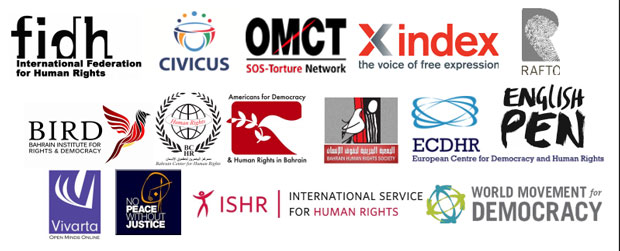
Background:
Index award winner Mr Nabeel Rajab is the President and Co-Founder of the Bahrain Center for Human Rights, Deputy Secretary General of the International Federation for Human Rights (FIDH), and a member of Human Rights Watch’s Middle East Advisory Board.
Bahrain authorities have previously prosecuted Mr. Rajab on politically motivated charges. They have never presented any credible evidence that Mr. Rajab has advocated, incited or engaged in violence.
Mr Rajab was detained from 5 May to 28 May 2012, for Twitter remarks criticizing the Interior Ministry for failing to investigate attacks carried out by what Mr. Rajab said were pro-government gangs against Shia residents. On 28 June 2012, a criminal court fined him 300 Bahraini Dinars (US$790) in that case. Authorities again detained Mr. Rajab on 6 June 2012, for another Twitter remark calling for Prime Minister Khalifa bin Salman al Khalifa to step down. On 9 July 2012, a criminal court convicted and sentenced him to three months in prison on that charge. A court of appeal overturned that verdict, but in a separate case a criminal court sentenced him to three years in prison for organizing and participating in three unauthorized demonstrations between January and March 2012. An appeals court reduced the sentence to two years, which Mr. Rajab completed in May 2014.
In September 2014 Mr. Rajab traveled to Europe to call for stronger international action on Bahrain. He met with representatives of various governments, the European Union, the European Parliament, and participated in the 27th Session of the United Nations Human Rights Council.
On 1 October 2014, less than 24 hours after his return to Bahrain, Mr. Rajab was summoned to the Criminal Investigations Directorate (CID) Cyber Crimes Unit for interrogation, where officers arrested and interrogated him for a number of hours in relation to a tweet he published while abroad. This arrest ultimately lead to Mr. Rajab’s conviction on 20 January 2015, on charges of “insulting public institutions,” referring to the Bahrain Ministries of Defense and Interior. The Bahraini government charged him in relation to a tweet in which he criticized members of the Bahraini security forces who have joined the ISIS extremist group. Mr. Rajab was charged under Bahrain’s penal code which unduly restricts and criminalizes, “[offending] by any method of expression the National Assembly, or other constitutional institutions, the army, law courts, authorities or government agencies.” The court sentenced him to six months in prison. Following international attention in his case, Mr. Rajab was released on bail pending the completion of his appeal.
Most recently, Mr. Rajab was arrested on 2 April 2015 on separate charges of insulting a statutory body, and spreading rumors during wartime. The former charge is related to Mr. Rajab’s documentation of human rights abuses at Bahrain’s Jaw Prison on social media. The latter is related to his documentation and criticism of Bahraini involvement in the Yemeni conflict in an opinion piece written for the Huffington Post.
Simultaneously, Mr. Rajab’s previous case has been reopened by the public prosecution, impeding his appeal. If these charges are upheld, and he is convicted of the new charges, Mr. Rajab may face over 10 years in prison.
23 Jan 2015 | News
Bahrain
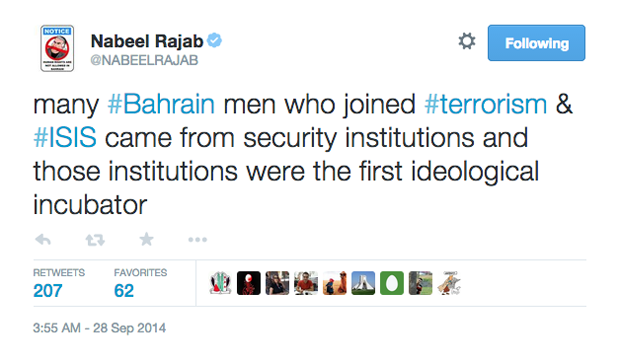
This week, prominent Bahraini human rights activist Nabeel Rajab was handed down a six month suspended sentence over a tweet in which both the country’s ministry of interior and ministry of defence allege that he “denigrated government institutions”. Rajab was only released last May after two years in prison, over charges that included sending offensive tweets. His experience is not unique in Bahrain. In May 2013, five men were arrested for “insulting the king” via Twitter.
Turkey
A former Miss Turkey was recently arrested for sharing a satirical poem criticising the country’s President Recep Tayyip Erdogan on her Instagram account. She is set to go on trial later this year. Turkey has a chequered relationship with social media, temporarily banning both Twitter and YouTube in the wake of the Gezi Park protests, in large part organised and reported through social media. In 2013, authorities arrested 25 individuals for spreading “untrue information” on social media.
Saudi Arabia
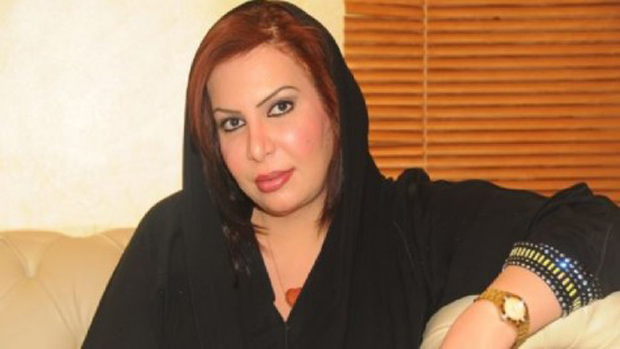
(Photo: Gulf Centre for Human Rights)
In late 2014, women’s rights activist Souad Al-Shammari was arrested during an interrogation over some of her tweets. The charges against her include “calling upon society to disobey by describing society as masculine” and “using sarcasm while mentioning religious texts and religious scholars”, according to the Gulf Centre for Human Rights.
France
![(Photo: « Source : Réseau Voltaire » [CC BY-SA 3.0 (http://creativecommons.org/licenses/by-sa/3.0)], via Wikimedia Commons](https://www.indexoncensorship.org/wp-content/uploads/2015/01/Dieudonné_Axis_for_Peace_2005-11-18.jpg)
(Photo: Réseau Voltaire [CC BY-SA 3.0], via Wikimedia Commons)
Following the series of terrorist attacks in Paris in early January, at least 54 people have been detained by police for “defending or glorifying terrorism”. A number of the cases, including against comedian Dieudonne M’bala M’bala, are believe to be connected to social media comments.
Britain

A 22 year old man was arrested in for “malicious communication” following Facebook messages made in response to the murder of soldier Lee Rigby, and another user was arrested after taunting Olympic diver Tom Daly about his dead father. More recently, police arrested a 19-year-old man over an “offensive” tweet about a bin lorry crash in Glasgow that killed six people. TV personality Katie Hopkins, known for her controversial tweets, was also reported to Scottish police following some tasteless tweets about about Scots. The incident prompted Scottish police the to post their now infamous tweet declaring they would continue to “monitor comments on social media“.
China
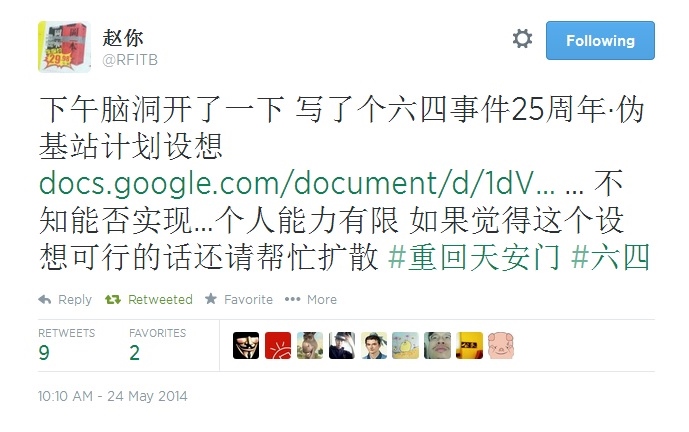
Online activist Cheng Jianping was arrested on her wedding day in 2010 for “disturbing social order” by retweeting a joke by her fiance. She was sentenced to one year of “re-education through labour”. Twitter is officially banned in China, and microblogging site Weibo is a popular alternative. In 2013, four Weibo users were arrested for spreading rumours about a deceased soldier labelled a hero and used in propaganda posters. The four were said to have “incited dissatisfaction with the government”, according to the BBC.
Australia

A teen was arrested prior to attending a Pink concert in Melbourne for tweeting: “I’m ready with my Bomb. Time to blow up #RodLaverArena. Bitch.” The tweet referenced lyrics from the American popstar’s song Timebomb.
India
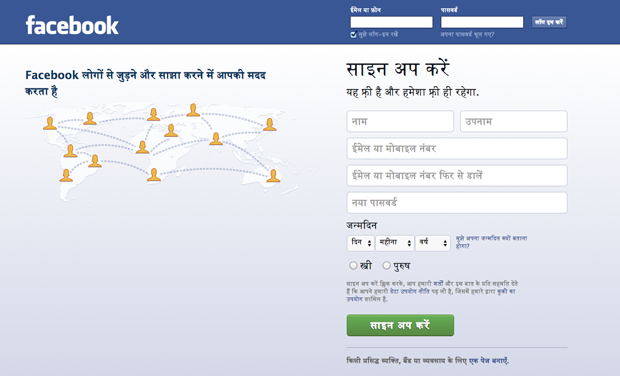
An Indian medical student was arrested in 2012 over a Facebook post questioning why her city of Mumbai should come to a standstill to mark the death of a prominent politician. Her friend was arrested for liking the post. Both were charged with engaging in speech that was offensive and hateful.
United States
Back in 2009, a New York man was arrested, had his home searched and was placed under £19,000 bail for tweeting police movements to help G20 protesters in Pittsburgh avoid the officers. According to Global Voices, it is unclear whether his actions were actually illegal at the time.
Guatemala
A man was arrested in 2009 for causing “financial panic” by tweeting that Guatemalans should fight corruption by withdrawing all their money from banks.
This article was posted on 23 January, 2015 at indexoncensorship.org
21 Nov 2014 | Azerbaijan News, News, Politics and Society
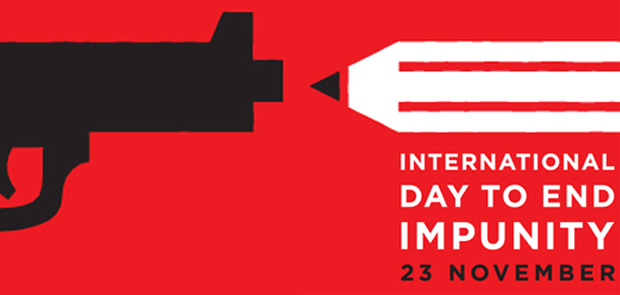
Impunity is a festering sore on freedom of the press. Harassment, violence and murder of journalists are problems around the world — even in Europe, as Index’s project mapping media violations has shown. The numbers speak for themselves: of the 370 media workers murdered in connection with their job over the past ten years, 90% have been murdered without their killers being punished. Many of these crimes aren’t even investigated.
Ahead of the International Day to End Impunity, journalists from across the world told Index why impunity is such a danger to free expression and a free press.
Kostas Vaxevanis, Greek investigative journalist, HOT DOC, and 2013 Index award winner
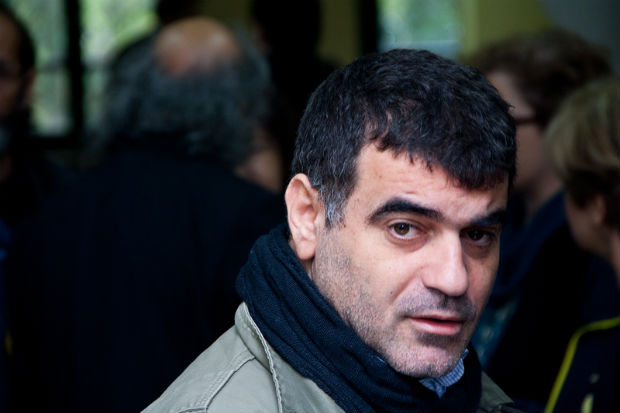
Impunity generates corruption and its enemy is the one thing that exposes and threatens it: the freedom of the press.
The HOT DOC is currently facing 40 lawsuits mainly from ministers and politicians in an attempt to shut us down as journalists. We reveal scandals like one with the minister of justice, a former judge who committed an “error” that granted amnesty to officials who had abused public funds, and instead of answering in public as required as politicians, we are being sued. We pester the courts and despite winning lawsuits, we need more than 80,000 euro per year for court expenses.
Heather Brooke, British-American journalist and 2010 Index award winner
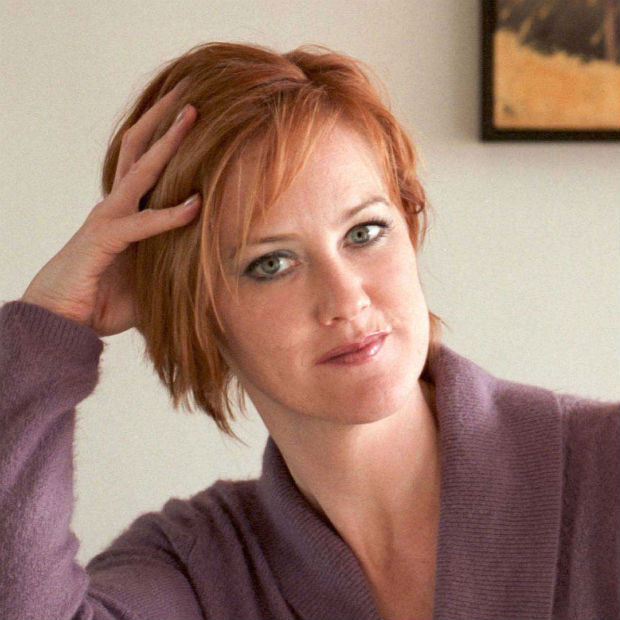
It is a problem that journalists around the world get threatened, intimidated and killed just for doing their job.
These crimes, like any other crime, need to be investigated. If not, it sends a message that this is okay; that the law is only for certain people. It is an implicit acceptance of this behaviour.
If we want to have a strong press, threats, intimidation and murder of journalists can’t be seen to be implicitly condoned by the state. It’s a dangerous message. It makes people frightened to ask tough questions, and if that happens, you are on the way to shutting down a robust press.
Kareem Amer, Egyptian blogger and 2007 Index award winner

I come from a country where we have a lack of justice. The executive power controls the parliament and the justice system. People feel that if they get mistreated or oppressed by those in power nothing will protect them or bring them justice.
Not only people who express their opinions suffer from a lack of justice. People from different backgrounds who have a different way of thinking and different interests also don’t trust the justice system. Those who have more power can easily avoid punishment and take revenge against victims who tried to get their rights through judiciary system.
Officially, police officers don’t have any kind of formal immunity. According to the law they can be questioned if they violate the rights of people by torturing or murdering. But, in fact, all those accused of killing protesters and torturing prisoners managed to avoid being punished, with a few exceptions.
I feel that it’s not safe to express your opinions freely in a country where people can easily avoid punishment.
I have been sentenced to four years in jail for writing two articles and publishing them on the internet, and during that time I have been through physical violence and mistreatment committed by security forces. I reported it but no one has been questioned or punished. That made me feel that there is no justice in my country and that it is easy to be humiliated and tortured and you will not get protected, since the judiciary system is practically part of the executive power and the judges do what the authorities want them to do.
Rahim Haciyev, Azerbajiani journalist and acting editor of 2014 Index award winner Azadliq

Rahim Haciyev, deputy editor-in-chief of Azerbaijani newspaper Azadliq (Photo: Alex Brenner for Index on Censorship)
Freedom of expression is the basis of all other rights and freedoms. Free speech is something all authoritarian regimes are worried about as it threatens their existence. That is why freedom of expression is specifically targeted by authoritarian regimes. If there are no free people, there is no freedom of expression. Free speech is a precondition for journalists to be able to work in full strength and thus fulfill their functions in society. Authoritarian regimes organise permanent attacks on journalists with impunity. A free journalist armed with freedom of expression is a threat to an authoritarian regime, this is why perpetrators receive awards, not punishment for oppressing journalists’ rights. This process leads to self-censorship, and journalists stop being carriers of truthful information, which in the end affects society.
Nazeeha Saeed, award-winning Bahraini journalist, who was tortured in police custody
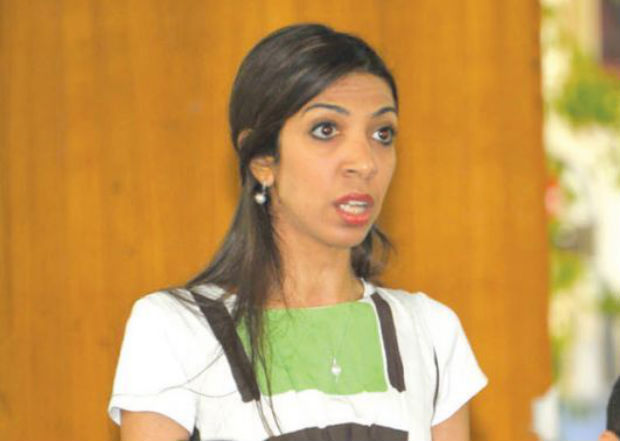
Impunity is a threat to free expression because journalists and people who report the facts on the ground will feel danger, and if no one gets punished for crimes against journalists or others it establishes a systematic impunity culture. Feeling insecure is something bad, it stops people from having a normal life, functioning and expressing themselves.
Endalk Chala, Ethiopian blogger and co-founder of the Zone9 blogging collective (of which six members are currently imprisoned for their writing)
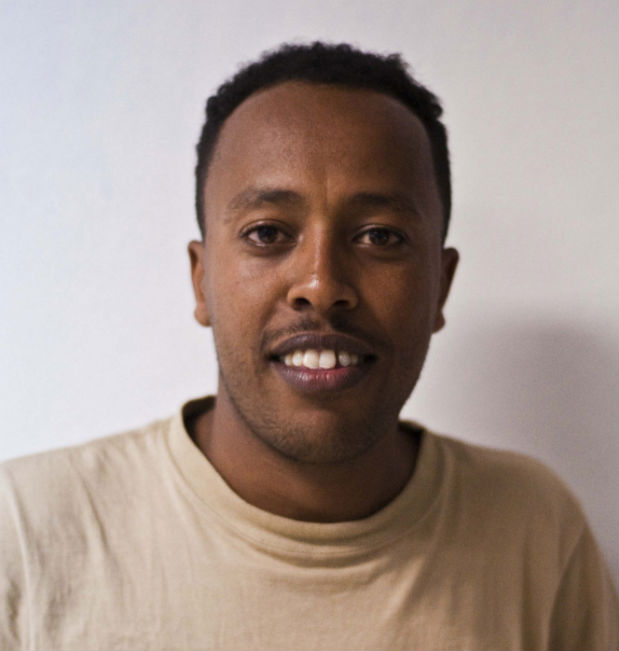
Impunity is a threat for free expression on many levels. In my experience I have seen impunity when it cultivates self-censorship. Let’s take the case of Zone9 bloggers. Since their arrest there are a lot of people who tried to visit them in prison, take a picture of them, attend their trial and tweet about their hearings but all of these have invited very bad reactions from the Ethiopian police.
Some were arrested briefly, others were beaten and it has become impossible to attend the “trial” of the bloggers and journalists. No action was taken by the Ethiopian courts against the bad actions of the police even though the bloggers have contentiously reported the kinds of harassment. As a result, people have stopped tweeting, taking pictures and writing about the bloggers. Apparently, the volume of the tweets and Facebook status updates which comes from Ethiopia has dwindled significantly. People don’t want to risk harassment because of a single tweet or a picture. This self-censorship could be attributed to impunity, which is pervasive in Ethiopia.
Impunity also causes a lack of trust in the Ethiopian judicial system. I don’t trust the independence of the Ethiopian justice system. I have never seen a police man/woman or a government authority being prosecuted for their bad actions against journalists. The Ethiopian government has been prosecuting hundreds of journalists for criminal defamation, terrorism and inciting violence but not a single government person for violating journalists’ rights. This tells you a lot about the compromised justice system of the country.
Andrei Soldatov, Russian investigative journalist and co-founder and editor of Agentura.Ru

Russia is known for its traditions of self-censorship. Despite what the laws say, the rules are explained in a quiet voice in some unmarked cabinets. Sometimes the rules are even not explained, and journalists, editors and owners of media have to constantly guess what is allowed at that moment. Not everyone is allowed to ask directly, so we are all in the game about signals sent by the authorities.
Journalists are beaten and killed in Russia, and this provides plenty of room to send such signals to the journalistic community. You don’t need to explain that investigative reporting in the North Caucasus is not allowed anymore: you just need to turn the investigation of Anna Politkovskaya’s assassination in 2006 into a show trial, where the assassins are duly found guilty, but the question of masterminds is never answered. You could be sure, the signal would be taken correctly.
Fergal Keane, Irish journalist, BBC foreign correspondent and 2003 Index award winner
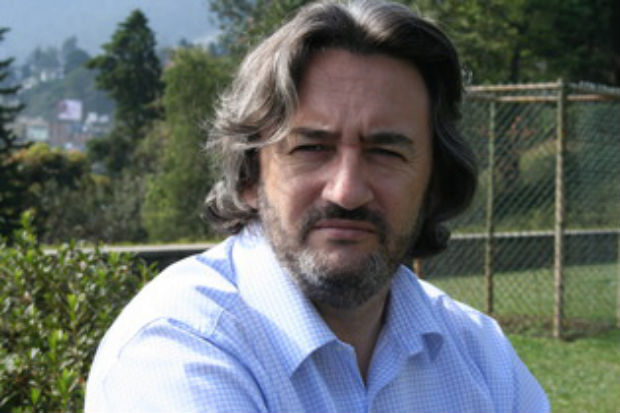
Impunity allows the enemies of free speech to threaten, torture and kill journalists secure in the knowledge they will never be called to account. I can’t think of a greater threat.
Veran Matic, B92 board of directors chairman and B92 news editor-in-chief
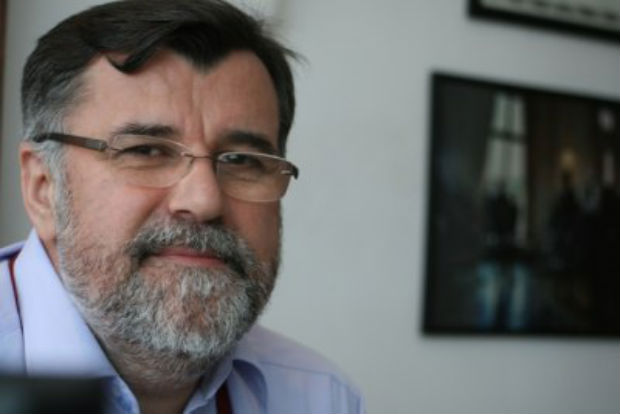
In my 25 years of experience in Serbia, I have been editor-in-chief of a media outlet that was banned on several occasions and I have been arrested.
Impunity directly encourages and expands violence towards journalists. The culture of producing fear is the most efficient form of censorship. One unsolved murder creates space for implementing the next one without any threat for the executioners. In the meantime, the media gets killed/eliminated in the process.
The lack of discontinuity with Slobodan Milosevic’s authoritarian regime had left room for impunity to remain intact.
Less than two years ago, I decided to make a kind of a breakthrough when it comes to impunity. I proposed the establishment of a mixed commission composed of journalists, members of the police and members of the security information agency. We managed to bring the 1999 murder of Slavko Curuvija to a phase where official indictment was brought, along with arrest of all suspects in this murder case. The 2001 murder of our colleague Milan Pantic is also in the final stage of investigation. A 1994 assassination — of Dada Vujasinovic — is being reviewed by the National Forensic Institute from The Hague because local institutions have compromised themselves in this case.
In the same way as impunity restricts freedom of speech, solving of these cases, at least 20 years later, will surely contribute to journalists being encouraged to do their job in the best possible way. Of course, I am not counting here on the new problems with which journalists and media face, and that call for finding new models of financing high quality journalism for the sake of public interest, worldwide.
The team behind Pao-Pao, a Chinese website focusing on internet freedom issues
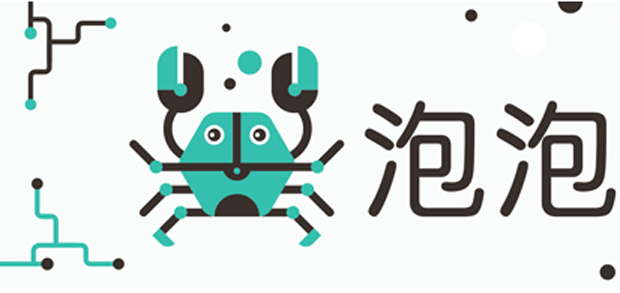
This year, we have seen a rising number of Chinese journalists, academics and human rights lawyers detained, threatened and arrested simply for speaking out online. While Chinese regulations on freedom of speech need to be closely examined, tech companies also play an important role in the deterioration of freedom of speech in China.
While Chinese tech companies are under the tight control of the Chinese authorities, there exists a culture of impunity in the western tech companies, especially when they are doing business in China. When we worked with our partner GreatFire to launch a FreeWeibo iOS application last year (an app to deliver uncensored content from Weibo, the largest social media platform in China), Apple decided to remove the app from their Chinese iTunes store. The only reason given was that Apple received a request from the Chinese authorities. This June, LinkedIn censored user posts deemed sensitive by the Chinese government on the global level, far beyond Beijing’s censorship requirement, even though LinkedIn does not have servers in China.
It would be the start of the end if these global tech companies start removing content simply because they do not want to upset their business relationships with China. It is crucial to hold these companies accountable for their behaviour. Otherwise it will further erode freedom of expression, not only for China, but also for the whole world.
The International Day to End Impunity was set up in 2011 by free speech network IFEX, of which Index on Censorship is a member, with the aim of demanding accountability and justice on behalf of those “targeted for exercising their right to freedom of expression”.
This article was originally posted on 21 November 2014 at indexoncensorship.org. It was updated at 14:09, 24 November to include the response from Pao-Pao.





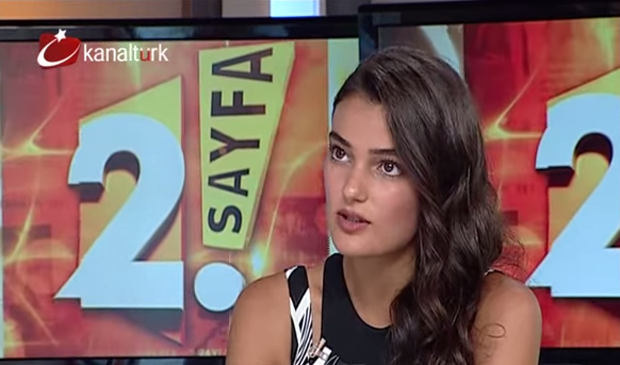

![(Photo: « Source : Réseau Voltaire » [CC BY-SA 3.0 (http://creativecommons.org/licenses/by-sa/3.0)], via Wikimedia Commons](https://www.indexoncensorship.org/wp-content/uploads/2015/01/Dieudonné_Axis_for_Peace_2005-11-18.jpg)




